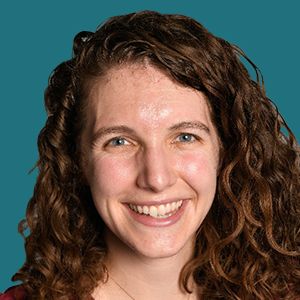Considerations for Administering Hemoglobinopathy Gene Therapies From a Pharmacist’s Perspective
Alexis Kuhn, PharmD, BCOP, a pediatric oncology pharmacist at Mayo Clinic, discussed the incorporation of the recently FDA-approved gene therapies for SCD and TDT into the work of pharmacists.
Alexis Kuhn, PharmD, BCOP
Credit: HOPA 2023

In December 2023, the first 2 gene therapy products, Vertex Pharmaceuticals' and CRISPR Therapeutics’ exagamglogene autotemcel (exa-cel, marketed as Casgevy) and bluebird bio’s lovotibeglogene autotemcel (lovo-cel, marketed as Lyfgenia), were approved by the FDA for the treatment of sickle cell disease.1 Another FDA approval for exa-cel in patients with transfusion-dependent beta thalassemia (TDT) followed just a month later.2 Following the approvals, physicians and other healthcare professionals in relevant fields are facing the task of incorporating these treatments into their practice.
Alexis Kuhn, PharmD, BCOP, a pediatric oncology pharmacist at Mayo Clinic, gave a talk on important considerations for the integration of these therapies at the 2024 Tandem Meetings |Transplantation & Cellular Therapy Meetings of ASTCT and CIBMTR, held in San Antonio, Texas, February 21-24, 2024.3 Following her talk, CGTLive® sat down with Kuhn to get her view on the main takeaways of her presentation for doctors and the broader healthcare community.
CGTLive: Can you give some background context about your presentation?
Alexis Kuhn, PharmD, BCOP: For my presentation today, the topic was gene therapy for hemoglobinopathies and particularly in the context of a pharmacist’s perspective. These therapies are obviously very new, very exciting, and very complicated. As pharmacists, there are a lot of areas that we do need to pay attention to and be aware of the nuances [of] not only for the individual agents, but for all of the concomitant therapies that our patients may be on prior to receiving these therapies. My talk just sort of summarized the data behind these therapies and specifically those pharmacy considerations relevant to them.
What were the key points that you discussed?
Number one, at least from a pharmacy perspective, is paying attention to the therapies that your patient is on and the considerations on if you need to hold prior to apheresis, prior to the conditioning regimen, or of course, prior to the therapy infusion itself. When can we safely resume these therapies? And then how do we monitor those patients after the fact?
What would you say is the big picture takeaway for doctors and the healthcare community?
I’d say for clinicians, physicians, and healthcare providers who are looking to onboard these new therapies at their institutions, being mindful of all of the considerations that go into it [is important]. If you do have clinical pharmacy support, integrate them early and often to help manage these therapies for your patients.
Can you speak about areas of interest for further research in this field?
Obviously, these are new therapies for sickle cell—they were just approved in December and sites are actively working to onboard them. Of course, the long-term outcomes are going to be key. Thus far we have, as compared to stem cell transplant, relatively limited follow up data. As these data mature, I think it will be really helpful for clinicians and patients alike.
Is there anything else you would like to share?
To kind of echo the points that I've been saying, for clinicians who are preparing to onboard these therapies and administer these therapies to our patients [it is important to be] making sure that the whole context of the patient and the therapies that they are on are considered and again, involving your clinical pharmacist who can help to navigate different therapies that need to be held, resumed, or possibly switched throughout the process.
This transcript has been edited for clarity.
Click here for more coverage of Tandem 2024.